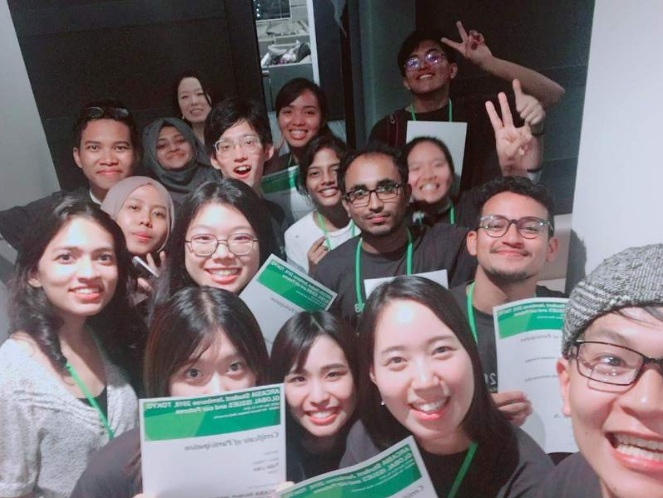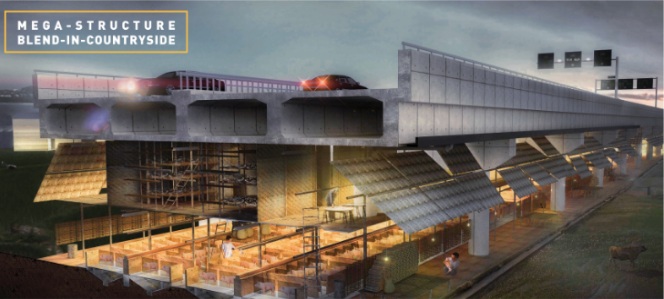ZJU students win Silver Prize in ARCASIA student competition 2018
Oct 03, 2018|hufei | Source: College of Civil Engineering and Architecture
On Sept.10, 2018, HU Xiaonan, TANG Yutian and CHU Yuxin from College of Civil Engineering and Architecture won the silver award in the ARCASIA(Architects Regional Council Asia) Student Competition 2018. Entitled ŌĆ£Mega-StructureŌĆØ, their work shone out amongst more than 40 entries from over 20 Asian nations.

ŌĆ£We were very lucky to win the prize. In the process of preparing for the contest, we did experience many detours. At the beginning, we had a lot of fantastic ideas. It was after many discussions with Prof. CHEN Xiang that we finally positioned the plan on the solid theme of ŌĆśblend overpass into the countryŌĆÖ. Our work may not be a very avant-garde and highly technical design, but it is a practical and intimate design that can impress the judges and well satisfied the requirements of ŌĆśsensitivity to find problems and the sharpness of solutionsŌĆÖ. The key for us to win the prize is that we deliver our idea in a clear and appealing manner. Here I would like to thank Prof. CHEN, and the platform provided by ZJU for us again,ŌĆØ said CHU Yuxin.
Organized by the Architects Regional Council Asia, the ARCASIA Student Competition is an international competition which pits outstanding young architects from various Asian nations against each other. It also provides participants a platform for intellectual exchange and collaboration, with a focus on urban issues of the future. The theme of ASC2018 is Local Issues and the Solutions.
The winners are selected after two gruelling rounds. In the first round, two works are selected to represent each participating nation. These works are then assessed in the final round by a panel of international judges.

The ZJU team focused their attention on the viaducts running through a village. The project highlights how a well-planned and well-utilized viaduct can result in positive urban-rural expansion and the formation of new rural architecture patterns.
Students were inspired by the Changshen Highway, an indispensable artery operating from the north to the south of Zhejiang Province, that facilitates urban development. This resulted in the vision of ŌĆ£Mega-Structure Blend-In-CountrysideŌĆØ. Influenced by their belief that high-speed overpasses can co-exist in harmony with the countryside landscape, the students integrated agricultural and public activities in the space under the viaduct. With much of the sunlight blocked out by the overhead viaduct, the space was observed to be well suited for activities of low-lighting demand.

The students' entry also promoted circular agriculture. This was achieved by combining the livestock and crops such as rice, alfalfa and mushroom to adjacent biogas digesters. Rainwater from the overpass was used for irrigation. Sports courts were also included in the design to supplement recreational venues for nearby schools. Public event spaces and villagers' centres were also planned at road nodes. This allowed for cultural exchange and recreation for villagers, further assimilating the overpass into the rural landscape.







